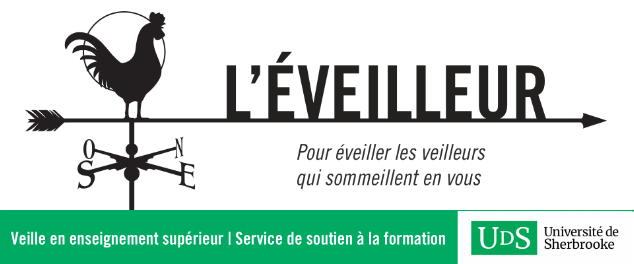Et la réponse britannique aux initiatives américaines ne s’est pas trop faite attendre…
Chris Parr du Times Higher Education rapportait le 14 décembre dernier que douze institutions du Royaume-Uni se sont regroupées autour de la plateforme FutureLearn afin d’offrir des MOOC (gratuitement) à l’ensemble de la planète. Les cours offerts seront connus l’an prochain. Dans son communiqué, David Willetts, ministre responsable de l’enseignement supérieur et de la science, indique assez clairement que le marché visé est celui des pays émergents:
“Moocs present an opportunity for us to widen access to, and meet the global demand for, higher education. This is growing rapidly in emerging economies like Brazil, India and China.
“Futurelearn has the potential to put the UK at the heart of the technology-for-learning agenda by revolutionising conventional models of formal education.
“New online delivery tools will also create incredible opportunities for UK entrepreneurs to reach world markets by harnessing technology and innovation in the field of education.”
La compagnie qui opérera la plateforme sera une entreprise indépendante, gérée majoritairement par la Open University. Les premières institutions qui y offriront des cours sont:
- University of Birmingham
- University of Bristol
- Cardiff University
- University of East Anglia
- University of Exeter
- King’s College, University of London
- Lancaster University
- University of Leeds
- The Open University
- University of Southampton
- University of St Andrews
- University of Warwick
D’autres institutions britanniques se seraient déclarées « très intéressées » et pourraient joindre ces rangs bientôt.
Dans un entrefilet du Globe and Mail, la journaliste Simona Chiose rappelle cependant que Oxford et Cambridge semblent résister à la vague des MOOC. Dans les commentaires, des lecteurs font plutôt l’hypothèse que ces vénérables institutions préféreront possiblement établir des MOOC d’élite (à la manière de edX pour Harvard, MIT, Berkeley, etc.) plutôt que de « ternir » leur marque en s’associant à des universités de moindre réputation.
« Oxford and Cambridge not joining in with the consortium doesn’t mean that they don’t believe in such an idea – it’s more likely that they don’t want to be seen mixing with those great unwashed lower-tier universities. Watch for them to bring out their own, superior online products at a stiffer price but with the Oxbridge cachet. » (Chris in Ottawa, 18 décembre 2012)
« …This very likely has more to do with snob appeal, where the great bastions of learning care not to be associated with the commoners. In the absence of any true scholarship, the antiquities of learning are resorting to snobbery and petty outrage to get attention. Instead of passing off new ideas, develop them, had the wheel been invented at the same time, Oxford and Cambridge would have looked down their noses at it to, all that learning and so little knowledge. » (Hee Ho Sai, 18 décembre 2012)
Sources:
Chiose, Simona, « Education Ticker: Learning on iPad an oxymoron », The Globe and Mail, 18 décembre 2012
Parr, Chris, «Open University launches British Mooc platform to rival US providers », The Times Higher Education, 14 décembre 2012






